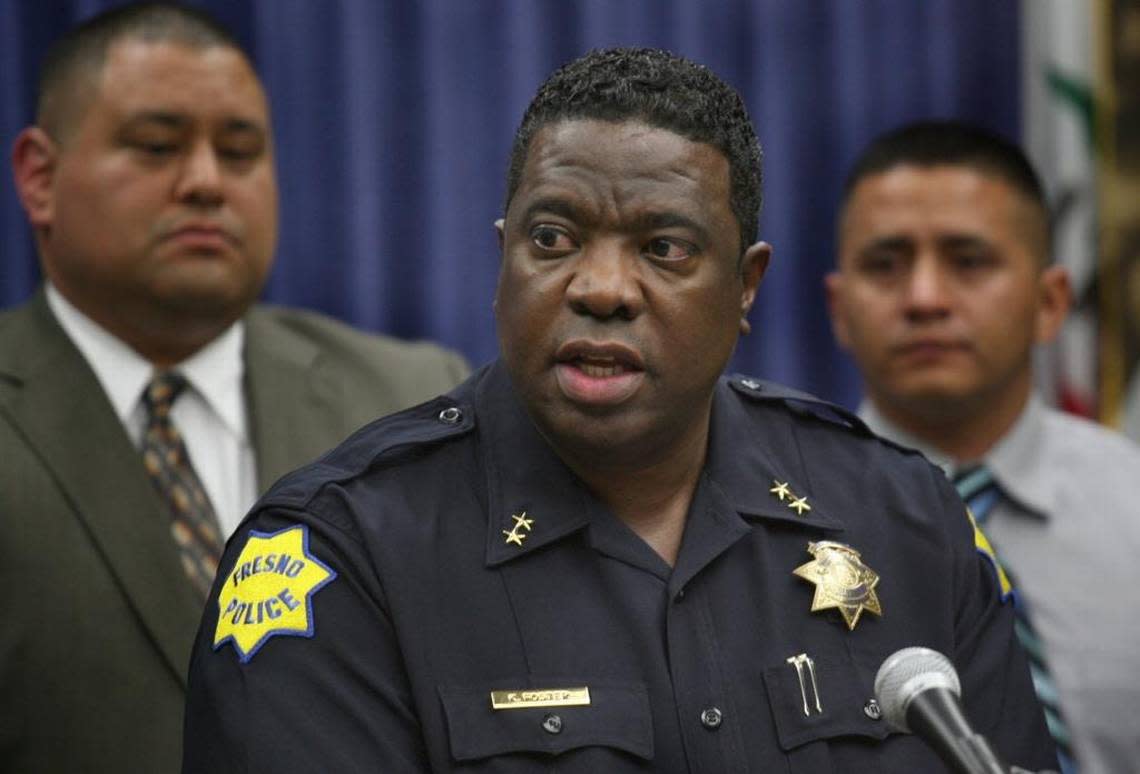Here’s what political corruption in Fresno gets you: Forgiveness and infamous notoriety
When a former congressman gets arrested by the FBI and charged with 28 counts of wire fraud, money laundering and making illegal campaign contributions, that should be a huge deal.
In Fresno, it’s a two-day story. Headlines on day one, logical follow-ups on day two, and by day three pretty much gone from the public discourse.
There are reasons for this. One of them is that TJ Cox isn’t really a big name in local politics. The Democrat was a complete unknown before an unsuccessful bid for Congress in 2006, didn’t run again until he (temporarily) unseated Republican David Valadao in 2018, and hasn’t been heard from since his 2020 election loss.
Another is that Cox’s district, the soon-to-be redistricted 21st, barely grazed the city’s southern outskirts. Meaning he never represented anyone residing in Fresno proper.
A third reason — and perhaps the most crucial in our understanding — is that Cox was elected despite well-publicized concerns over business dealings and personal practices. Such as claiming Bethesda, Maryland, as his primary residence on a tax form when he actually lived in Fresno.
Opinion
None of that prevented Cox from getting elected. So why would anyone care now after the feds painstakingly detailed allegations against him that fall in line with what they suspected all along?
Cox contends the charges are a political hit job. But coming days after the FBI searched Donald Trump’s Mar-a-lago residence, raising Republican ire nationwide, his timing couldn’t have been worse.
If convicted, Cox will be the latest name inscribed into Fresno’s lengthy annals of corrupt politicians and public officials. A history that is equally matched by the community’s acceptance and forgiveness of such behavior.
Fresno’s colorful history of corruption
These roots can be traced all the way back to the early 1900s when Fresno was controlled by railroads, the liquor industry and gambling interests, which gave public servants their marching orders. One of the city’s first police chiefs, publicly censured for “inactivity in enforcing city ordinances” and forced to resign, later served on police and fire commissions.
During 1920s-era Prohibition, Fresno was known as California’s wettest county. A federal agent, who hid in the trunk of a bootlegger’s roadster, collected evidence of an illegal liquor syndicate involving several farmers, the mayor, and a quarter of the police force. The result was charges against 13 defendants. The mayor and police chief emerged unscathed.
Corruption truly took hold in the 1930s and ‘40s when Fresno’s police chief also controlled much of its gambling and prostitution. And when that chief got sentenced to 18 months in federal prison for tax evasion and money laundering in 1950, his second-in-command got the job and assumed control of those vices by marrying the madam of Fresno’s largest brothel. His tenure lasted until 1971. (Mark Arax’s “In My Father’s Name” is essential reading about this period.)
Fresno’s tolerance for our public servants’ bad behavior continued in the 1980s when the city was led by a mayor with a well-publicized relationship with a convicted cocaine dealer. Also when voters re-elected a state assemblyman despite his two-month-old arrest for solicitation.
In the 1990s, “Operation Rezone” dominated the headlines. A six-year FBI investigation into corruption between developers and politicians resulted in 16 convictions, including the city’s most prominent home-builder and three council members apiece from Fresno and Clovis. One Fresno councilman offered to sell his vote for a set of used tires; another did so for a suit.
A forgiving city, to a fault
One would think such a blatant sellout of our democracy would elicit widespread scorn. Nope. Instead, many groused about the feds sticking their noses into our business and having the gall to indict and convict our finest citizens. A prosecution witness who worked in the construction industry had the words “FBI snitch” and “blood money” spray-painted on her house and car.
“It is surprising how accepting this community is of political corruption,” began a Bee editorial from February 2000. “People who have committed felonies in the Operation Rezone cases still represent developers before our elected bodies in Fresno and Clovis. And our elected officials don’t even blink.”
Two decades and change after they were printed, every word in those three sentences remains factual.

Fresno’s scandal tolerance shows no sign of ebbing. Jerry Dyer’s path from police chief to mayor wasn’t the slightest bit derailed by his deputy chief getting busted for cocaine and marijuana distribution, nor by a couple well-publicized issues from his own past.
Yes indeed. We’re an accepting, forgiving city. You might say to a fault.
The general blasé attitude makes it tough for claims of corruption (especially when shouted by the loudest, angriest voices) to gain much traction. You have to come with pages and pages of detailed, documented evidence.
But even then, it’ll probably end up a two-day story. Quickly absorbed into Fresno’s dishonor roll of public officials who serve a largely disinterested populace, and soon forgotten.
